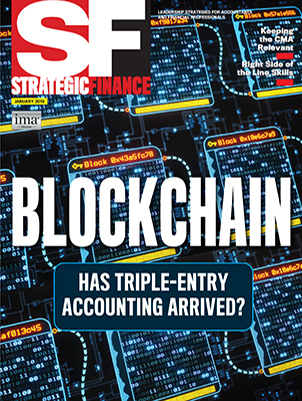That’s how I found myself in an introductory accounting class one day as my professor showed us a slide of pictures he had taken while doing fieldwork for various audits. One picture showed him in the depths of a mine, and he told us how he had been outfitted with safety gear and lowered into the mine, feeling the temperature rise as he descended. I was hooked. Listening to my professor share his experiences, I realized I had found a field with a career’s worth of possibilities.
One of my favorite accounting courses was an introduction to managerial accounting. I felt a sense of empowerment in the class. Managerial accounting gave me tools to translate the balances and ratios of accounting into valuable insights that can solve problems and drive business decisions.
Taking the advice of my managerial accounting professor, I joined BYU’s IMA® (Institute of Management Accountants) club, and suddenly I had a wealth of opportunity at my fingertips. The club organized field trips to local businesses and small group lunches with respected business leaders. We walked through operations, spoke with accountants, and were given access to the experienced professionals of the BYU Marriott School of Business’s National Advisory Council.
After graduation, I went to work for The Walt Disney Company, taking a full-time role in its two-year Accounting & Finance Rotational Program. Once I settled in, I began studying for the CMA® (Certified Management Accountant) exam. As a student, I had received a generous scholarship from IMA that paid for both my IMA membership and my first attempt at both exam parts, so all that was left was to knuckle down and study.
As I reviewed for the exam, I was also rotating through transactional accounting, financial reporting, finance, and compliance teams at work, doing things as diverse as film valuation, revenue accounting for merchandise licensing, and Sarbanes-Oxley control testing.
On every team I found ways to apply the concepts I studied for the CMA exam. I became a better-informed participant in conversations about foreign currency translation, cost and rate variances, and the new revenue recognition standard. My exam study brought all the accounting principles I had learned in school to the forefront of my mind and gave me a deeper understanding of my work.
When I finish my rotational program this summer, I will have completed the work experience requirement to become certified as a CMA. The certification is important to me because it signals both my capabilities and the type of work I want to do. While my next steps are still to be determined, I feel well-prepared by the CMA certification process, and I am excited to see what opportunities it brings next.

January 2019



